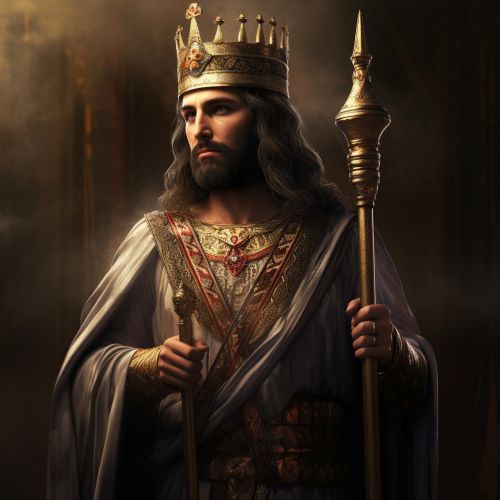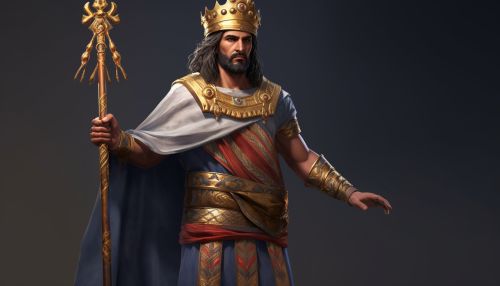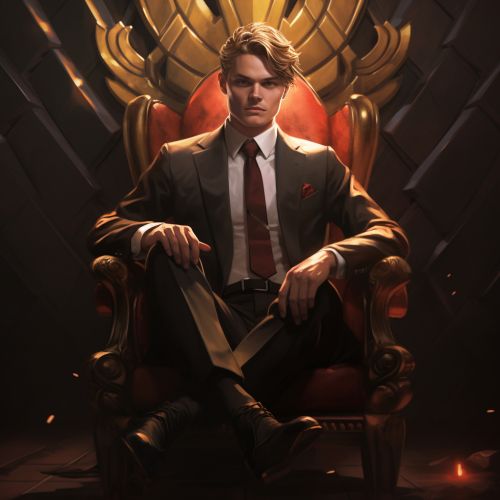King
Definition
A King is a male ruler of a nation or region, usually by hereditary right. The term originates from the Old English 'cyning', which is derived from the ancient Germanic 'kuningaz'. The concept of kingship has existed since the dawn of human civilization, with the role and power of a king varying greatly depending on the historical and cultural context.
Historical Overview
The institution of kingship is a universal phenomenon that was found in the earliest recorded histories of human civilization. The role of a king in ancient societies was often religious as well as political, as they were considered to be divinely chosen or even divine themselves.
Ancient Near East
In the Ancient Near East, kingship was often associated with divine right. The king was seen as a mediator between the gods and the people, and his rule was legitimized by divine approval. The most famous example of this is the Pharaohs of Ancient Egypt, who were considered to be gods on earth.


Europe
In Europe, the concept of kingship evolved over time. In the early Middle Ages, kings were primarily war leaders, but their role expanded over time to include law-making and justice administration. By the High Middle Ages, the idea of divine right of kings became prevalent, and kings were seen as ruling by the will of God.
Asia
In Asia, the concept of kingship varied greatly. In China, the king (or emperor) was seen as the Son of Heaven and ruled with a Mandate from Heaven. In India, the king (or raja) was a central figure in the social and political order, and his rule was legitimized by his ability to uphold dharma, or cosmic order.
Powers and Duties
The powers and duties of a king can vary greatly depending on the specific historical and cultural context. However, some common elements can be identified.
Legislative Power
In many societies, the king has the power to make laws. This power can be absolute, as in an absolute monarchy, or it can be limited by a constitution, as in a constitutional monarchy.
Executive Power
The king often has the executive power, meaning that he has the authority to enforce laws and administer justice. This can include appointing officials, maintaining the military, and overseeing the bureaucracy.
Religious Role
In many societies, the king has a significant religious role. This can range from being seen as a divine figure, to being the head of the state religion, to being a secular figure who is nonetheless responsible for upholding religious norms and rituals.
Kingship in Modern Times
In the modern world, the role of a king has changed significantly. Many countries have transitioned from absolute monarchy to constitutional monarchy, where the king's powers are limited by a constitution. In these countries, the king often serves as a ceremonial figurehead, while the actual governance of the country is carried out by elected officials.
However, there are still a few countries where the king retains significant powers, such as Saudi Arabia and Swaziland. In these countries, the king is both the head of state and the head of government, and he has considerable influence over the country's laws and policies.


